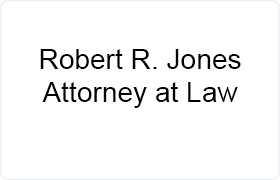Magnolia RICO Act Lawyer, Texas
Sponsored Law Firm
-
 x
x

Click For More Info:
-
Robert R. Jones Attorney at Law
3526 E. FM 528 Suite 204 Friendswood, TX 77546» view mapCriminal Defense Expert Representation for Reasonable Rates
If you need representation, call me 24/7.
800-883-8760
Mervyn Milton Mosbacker
✓ VERIFIEDCriminal, Securities Fraud , Felony, RICO Act
My mission is to vigorously fight for my client and to make sure my client is protected from unfair and abusive government or law enforcement actions.... (more)
 Robert Jones Friendswood, TX
Robert Jones Friendswood, TX AboutRobert R. Jones Attorney at Law
AboutRobert R. Jones Attorney at Law Practice AreasSpecializations
Practice AreasSpecializations

